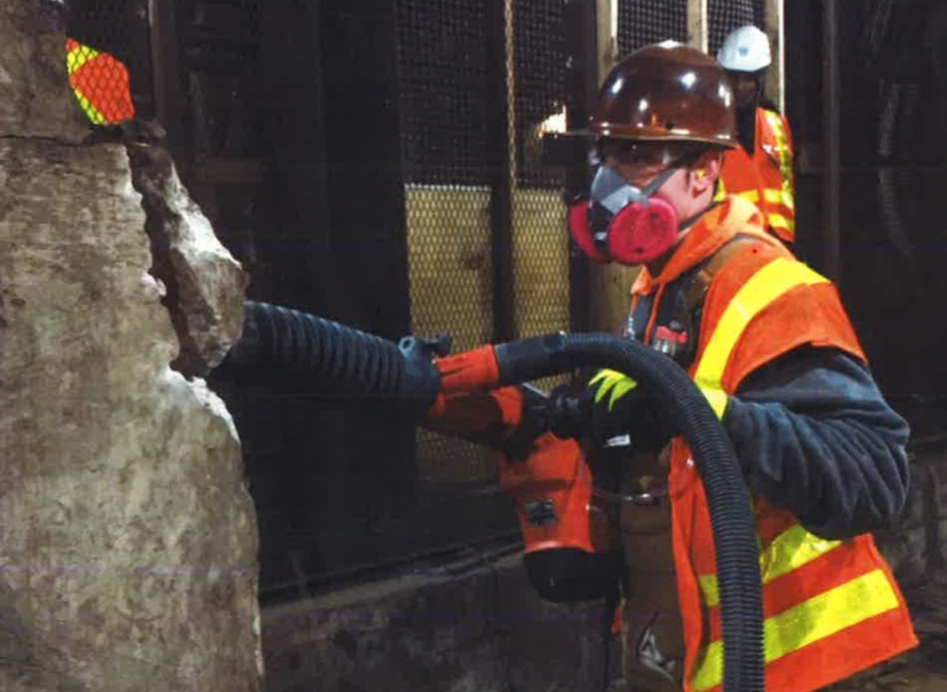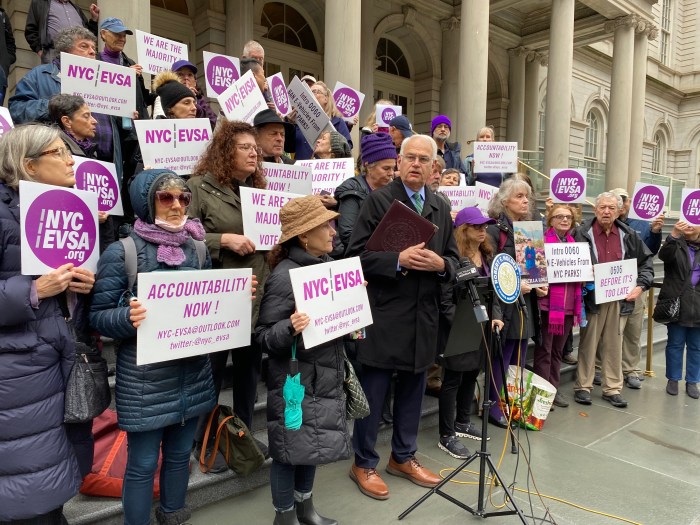BY RICO BURNEY | Residents around E. 14th St. are breathing a sigh of relief that the impacts from the upcoming L-train tunnel repairs won’t be as bad as had been expected when the project called for a full shutdown of the line’s Manhattan leg for 15 months.
The Metropolitan Transportation Authority recently made some announcements regarding the L-train work that is set to begin at the end of this month.
Foremost for those living and working around E. 14th St. is the news that all the construction debris will no longer be extracted at a major staging area near Avenue A, as originally planned. Instead, the tunnel debris will be transported along the tracks via subway work cars to a Brooklyn rail yard.
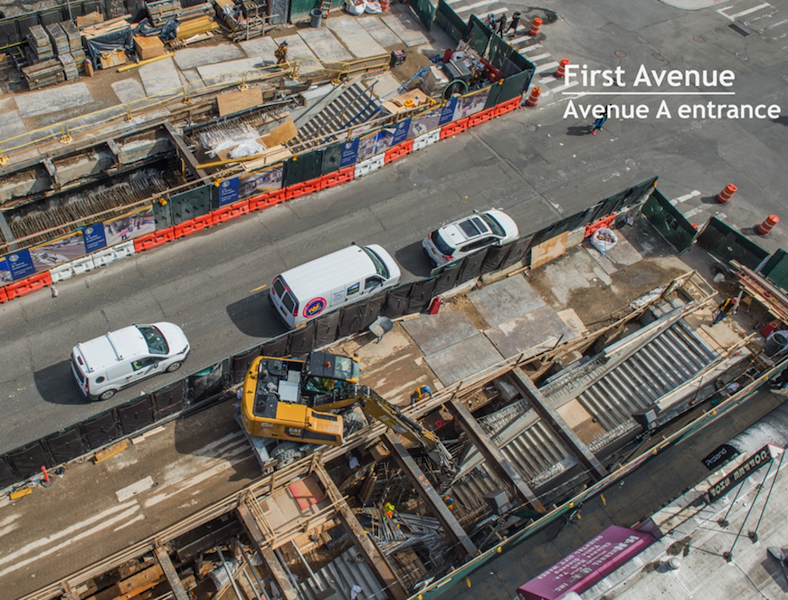
Janno Lieber, M.T.A. chief development officer, credited the new tunnel plan — which calls for 93 percent less demolition work compared to the original plan — for this development. He also said the decreased demolition led the M.T.A. to cut work hours from 16 to 12 per day on the ongoing projects to add new entrances at Avenue A for the First Ave. station and on the Avenue B substation.
The announcements were made at the New York City Transit and Bus Committee meeting on Mon., March 25.
E. 14th St. residents say they are at their “wits’ end” over dealing with the latter two construction projects the past two years — and they believe that the M.T.A. could still do more to mitigate these impacts.
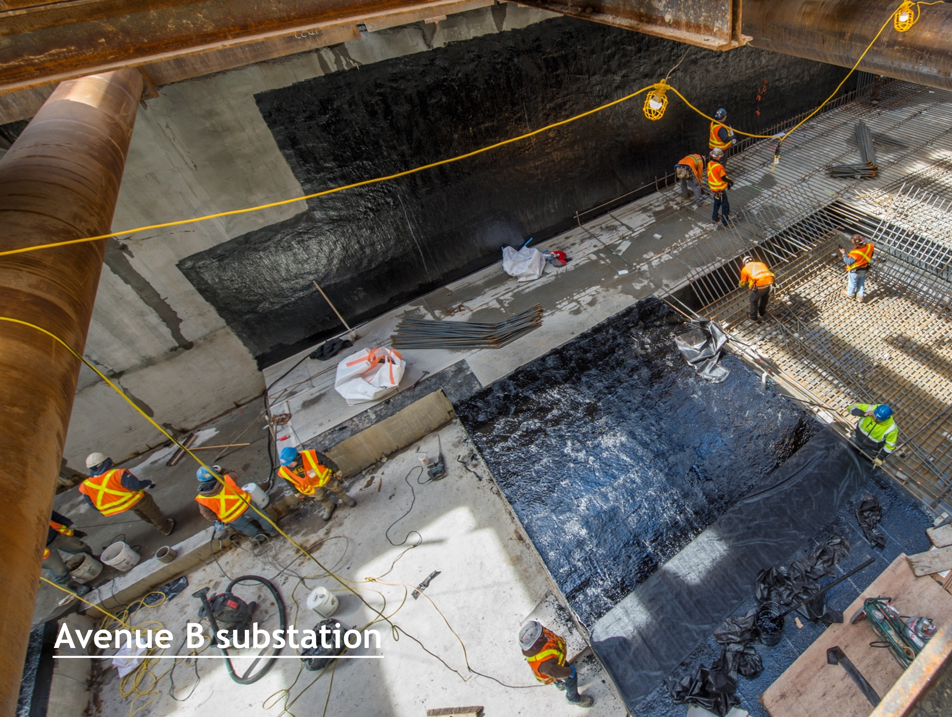
“That’s great news,” Penny Pennline, who lives between Avenues A and B, said of the announcements. “But I still don’t understand why they have to torture us with jackhammers and trucks beeping at 7 a.m. We’ve asked for them to start later in the day and they just ignore us.”
Dale Goodson, president of the North Avenue A Neighborhood Association, echoed Pennline’s comment. He said he is in favor of shortening the work day, “even if it extends the overall repair schedule.”
Also discussed at the meeting were concerns over plans for dust mitigation. The issue was highlighted after straphangers at Brooklyn’s Bedford Ave. station recently found it covered in dust following train service resuming after a weekend closure.
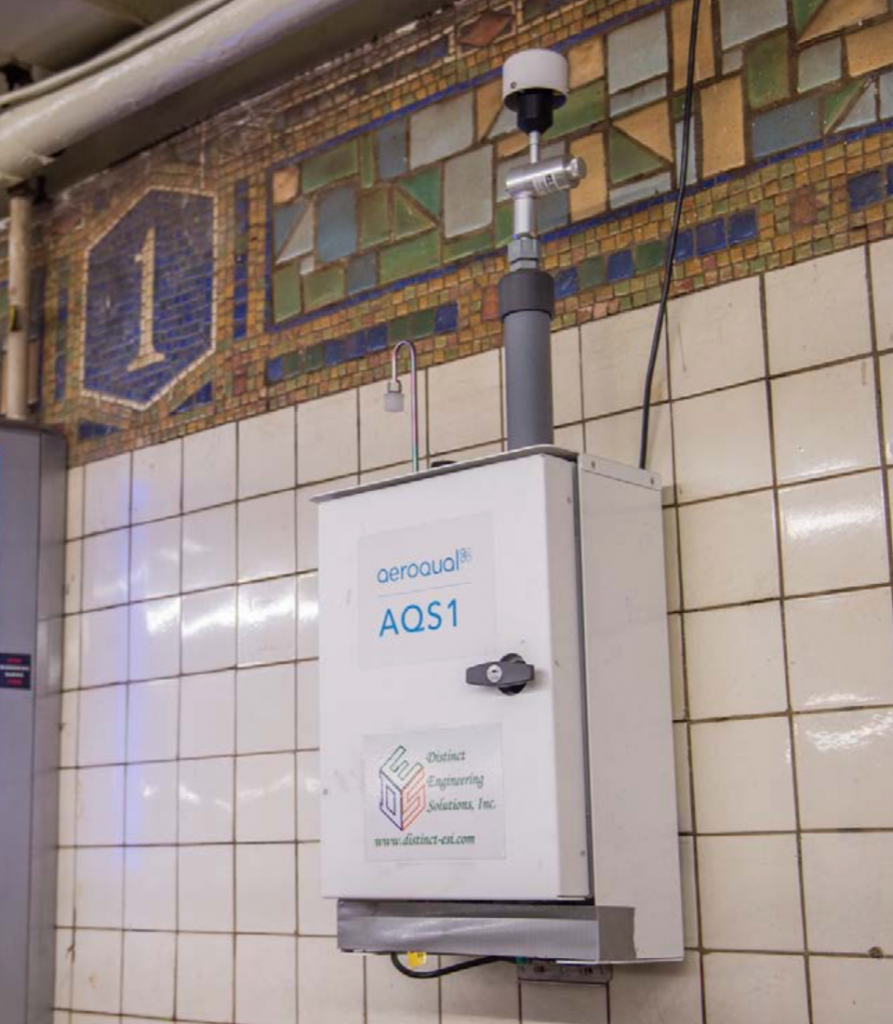
The Daily News reported that the silica dust level at the station that morning was 9.4 micrograms per cubic meter of air, or three times the normal level. The M.T.A. asserted that level is safe to breathe.
“The OSHA limit for people working eight hours a day over the course of decades is 50 micrograms of silica per cubic meter,” said Max Young, M.T.A. chief external affairs officer. He was referring to U.S. Occupational Safety and Health Administration.
“There is absolutely no reason to suggest any health issues or concern,” Young added. “This is a federal scientific standard, and nothing outweighs science.”
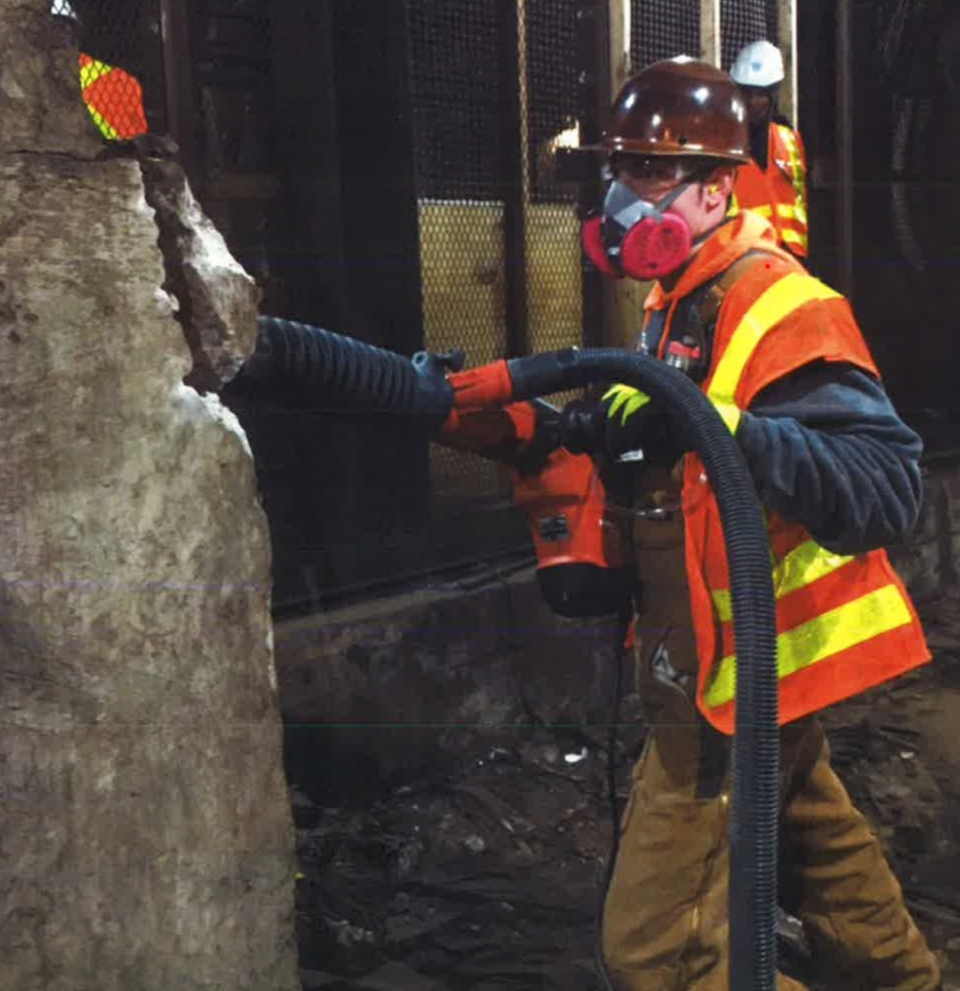
Lieber addressed these concerns at the meeting, too. He stated that the M.T.A. installed air monitors in the affected L stations and would make the data from them public. However, Lieber could not give specifics yet on how that data would be released, and how often. State Senator Brad Hoylman said he wants the M.T.A. to release the data in real time.
“In post-9/11 New York, people have good reason to be concerned when government tells you not to worry about environmental contaminants,” Hoylman said.
E. 14th St. residents, on the other hand, said they are past the point of believing anything the M.T.A. has to say about air quality. Pennline said that she and a number of neighbors have been dealing with health problems stemming from construction dust since work on the First Ave. station started there a little under two years ago.
“Every doctor says that it’s my environment making me sick,” Pennline said. “We have begged for dustproof windows, air conditioners — anything to help, and they just lie to us and say it’s not that bad.”
And if residents did not have enough reasons to mistrust M.T.A. officials, Fernando Ferrer, the then-acting M.T.A. chairperson, backtracked on his promise from January that both the original and modified L-train tunnel repair plans would be examined by an independent commission. That was supposedly going to allow the board to make an educated decision on which plan was more feasible ahead of implementation.
Instead, Ferrer announced at the full-board meeting on Tues., March 26, that the M.T.A. had awarded a $1.2 million contract to J.M.T. Consulting Group to oversee the safety of the project once construction begins.



